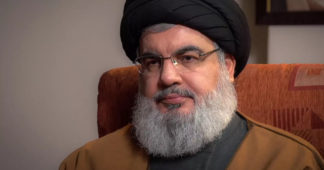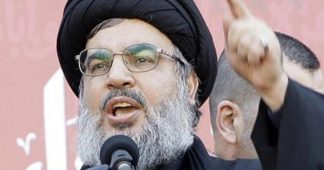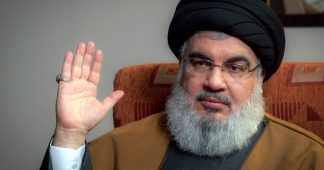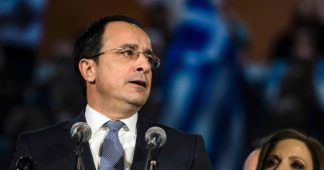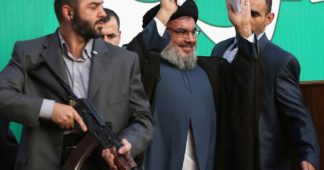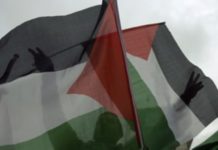Sep 28, 2024
Under Nasrallah’s leadership, Hezbollah carried out significant military operations against Israel, culminating in Israel’s withdrawal from southern Lebanon in 2000 after a 22-year occupation.
On September 27, 2024, the Israeli army announced it had bombed Hezbollah’s central headquarters in Beirut, targeting the group’s leader, Hassan Nasrallah.
The next day, Hezbollah confirmed in a statement Nasrallah’s death, vowing to continue its resistance against Israel and to support Gaza and Palestine.
‘Master of Resistance’
Hassan Nasrallah, the third Secretary-General of Lebanon’s Hezbollah, was born in 1960 and assumed leadership of the group on February 16, 1992, following the assassination of his predecessor, Abbas Musawi, by an Israeli missile strike.
Known as the “Master of Resistance,” Nasrallah pursued religious education in Shiite seminaries in Lebanon, Iraq, and Iran.
Under Nasrall’s leadership, Hezbollah carried out significant military operations against Israel, culminating in Israel’s withdrawal from southern Lebanon in 2000 after a 22-year occupation.
He played a key role in the 2004 prisoner exchange with Israel, described as one of the largest swaps of prisoners and bodies, including prisoners from other Arab nations.
🚨BREAKING: Hezbollah announces the martyrdom of its Secretary-General, His Eminence Sayyed Hassan Nasrallah, who led the Islamic Resistance in Lebanon since 1992. pic.twitter.com/n0ThvruWEo
— The Palestine Chronicle (@PalestineChron) September 28, 2024
Nasrallah’s reputation soared during the 33-day war with Israel in 2006, which ended with Israel withdrawing from southern Lebanon after suffering heavy losses. He became an icon of resistance to Israel and a voice against Western influence in the Middle East.
Nasrallah’s speeches, marked by enthusiasm and charisma, were widely followed across the Arab world.
When the Palestinian Resistance launched the Al-Aqsa Flood operation, on October 7, 2023, Nasrallah immediately expressed its support and solidarity.
The following day, on October 8, Hezbollah opened a front in southern Lebanon in solidarity with Gaza.
From Amal to Hezbollah
Born on August 31, 1960, in Al-Bazourieh near Tyre, southern Lebanon, Nasrallah was the eldest of three brothers and five sisters.
He married Fatima Yassin and had five children: Hadi, Zainab, Muhammad Jawad, Muhammad Mahdi, and Muhammad Ali.
Nasrallah’s eldest son, Hadi, was killed by the Israeli army in 1997 during clashes in southern Lebanon, and his body was recovered in a 1998 prisoner exchange deal with Israel.
Nasrallah’s early education took place in the poor Karantina neighborhood of Beirut at the private Al-Kifah school, followed by studies at the Educational Secondary School in Sin El Fil.
When Lebanon’s civil war erupted in 1975, Nasrallah’s family returned to Al-Bazourieh, where he completed his secondary schooling.
At 16, Nasrallah enrolled in religious studies at a seminary in Najaf, Iraq, where he was mentored by Abbas Musawi, Hezbollah’s future Secretary-General.
After being forced to leave Iraq in 1978, Nasrallah returned to Lebanon and continued his religious training at the Imam al-Muntazar Seminary in Baalbek, founded by Musawi. He briefly pursued studies in Qom, Iran, before returning to Lebanon.
Nasrallah became politically active with the Amal Movement during his high school years, eventually becoming its organizational leader in Al-Bazourieh.
By 1979, he was Amal’s political chief for the Bekaa region. In 1982, following a rift with Amal’s leadership over strategies to confront Israel, Nasrallah joined Hezbollah and was appointed as the group’s Bekaa regional leader, tasked with mobilizing fighters and forming military cells.
He continued to rise within Hezbollah’s ranks, becoming the group’s top executive responsible for implementing decisions made by the Shura Council.
In 1992, after the assassination of Musawi, Nasrallah, despite being the youngest Shura member, was unanimously elected Secretary-General.
We remind our readers that publication of articles on our site does not mean that we agree with what is written. Our policy is to publish anything which we consider of interest, so as to assist our readers in forming their opinions. Sometimes we even publish articles with which we totally disagree, since we believe it is important for our readers to be informed on as wide a spectrum of views as possible.
